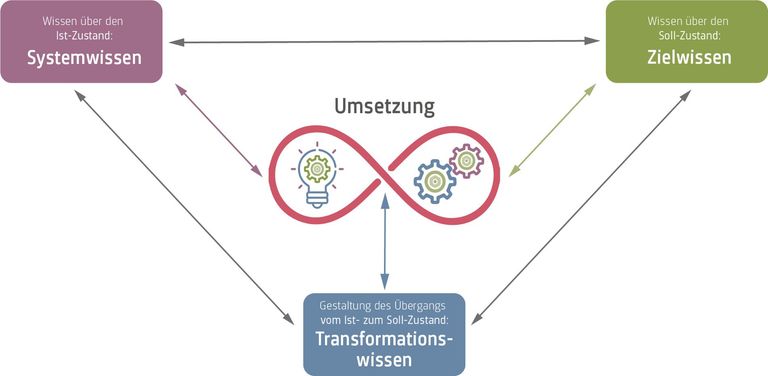Contributions of science to sustainability transformations
How can research contribute to societal transformations in the direction of sustainability?
Transformations can only succeed if many stakeholders work together towards greater sustainability. Transformative researchers often view themselves as guides or facilitators. They work on a diverse range of outputs that impart transformation knowledge. They experiment with innovative methods that enable the participation of different stakeholders. They also consider necessary changes in their own practices and in the structures of academia in order to enable more sustainable research, teaching, and living.
The following comments are not exhaustive. They are mainly based on a snowball survey circulated in the first quarter of 2022 within the network of the Academies, starting with SCNAT. In 2023, we aim to address, among other things, the question of how scientific contributions are perceived by different stakeholders in society.
Methodological diversity and development
Researchers emphasize working with research approaches and methods that focus on societal engagement, including:
- Real labs
- Living labs
- Participatory research
- Action research
- Transdisciplinary methods, including reflexive workshops
In dialogue with others, they seek to help shape transformations by:
- Prompting changes in existing perspectives
- Reframing problems to elicit different questions
- Making unheard voices heard
- Transferring case-specific ideas and knowledge to other regions (“cross-pollination between research regions”)
- Strengthening self-organized groups
- Sparking public discourse and deliberation
- Enabling collaborative and transformative learning.
Diverse outputs
In addition to journal articles, researchers work on a variety of outputs – usually in collaboration with expert practitioners – in an effort to disseminate transformation knowledge.
- Policy briefs
- Training programmes
- Guides
- Websites
- Apps
- Videos
- Networks
- Alternative narratives, paradigms
- Success stories
Reflecting on one’s own practices and linking research and teaching
Researchers often view themselves as part of sustainability transformations, review their own practices vis-à-vis sustainability, and engage in corresponding discussions with students. Against this backdrop, student feedback on ongoing research is also considered part of efforts to reflect on and refine concepts and approaches.
“Transformation of science”
Finally, researchers consider how universities and research funding should be designed so that science itself can enhance its impact on societal transformations towards greater sustainability.


